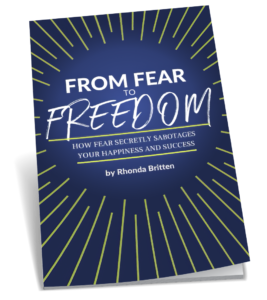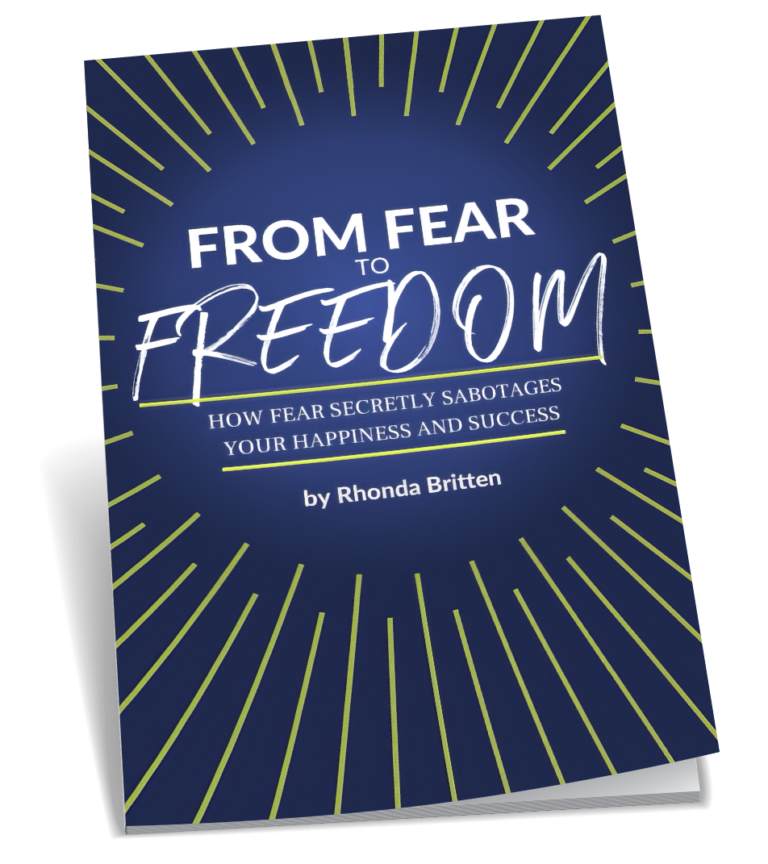Does any of this sound familiar?
You send your friend three texts spaced out over several days, yet it’s a week before you hear from them.
Or maybe you get tons of texts from a family member, but they never have anything to do with you. And when you do bring something up about your own life, they ignore it.
Or maybe you’ve had one partner for years and believe you’re on the same page and have a meaningful connection, and yet in all that time, they’ve never bought you an anniversary present or made you dinner.
Or let’s say you’ve gone out of your way to tell your friend that honesty is important to you, yet they still keep lying or misleading you.
Any of these ring a bell? I’m sorry to say it, but you could be in a one-sided relationship.
Today, I’ll break down 6 signs you’re in a one-sided relationship, so you can better understand who is bringing you down, who you should spend more or less time with, and who you may need to cut out of your life for good.

Am I in a One-Sided Relationship: 6 Signs
1. They never ask you questions about you.
Consider your relationships, whether they’re with your family members, friends, coworkers, or your partner. Think about the conversations you have. Who is the one asking the questions? Who is doing most of the speaking? Are you in relationships with people you feel must not know you very well because you can’t remember ever really speaking to them about your job or your hobbies or your interests?
This is surprisingly common, so don’t be surprised if this rings a bell or two. You’re so focused on whether or not you’re being a good listener and a good friend to them that you forget to think about yourself.
And before you know it, you reach the end of your time together without ever saying a SINGLE thing about yourself. And do you know why? Because you weren’t asked.
You spent the entire conversation listening. It’s not that you’re shy or don’t have anything to say; you simply weren’t asked any questions.
A relationship becomes one-sided when we aren’t given any space to speak. You might want to engage in a conversation, but you’re not given the space to. Think about your relationships. Do the people you are close to ask you questions about your life, interests, goals, recent updates, etc.? Are they really healthy relationships if all you do is speak about the other person’s life?
And before we play the BLAME GAME, it’s important to also think about your own behavior. Do you ask the people in your life questions about themselves?
2. You don’t feel like you can be open about your needs.
We all have needs, such as love, belonging, trust, respect, and honesty. Don’t those things sound good? Are your needs fulfilled by each of your relationships? Do you feel respected? Do you feel like you belong? Do you feel safe expressing yourself without the fear of judgment? If your needs aren’t being met, do you feel like you can say so to improve the situation?
If your needs aren’t being met and you feel you can’t talk about your needs, it’s a sign you’re in a one-sided relationship.
Ask yourself; how open is the other person about discussing their needs? Do you feel like you do whatever you can to ensure their needs are met, even (and often!) at the expense of your own?
Really think about it because there’s a good chance you rarely notice this or do your best to shrug it off with words to yourself like, “well, I guess that’s Joan. What can you do?” “Oh, it’s no big deal. That’s just who they are.”
Folks, it is a BIG DEAL. When our needs aren’t fulfilled, it breeds resentment and hostility. Resentment can grow slowly over time, so slowly that you may not notice it until it’s too late. You can burn out, reach a breaking point and lose your temper, or grow to strongly dislike the other person.
Friendship is a two-way street, and if all of your communication is only about what the other person needs, you may start to internalize those feelings of neglect, believing yourself to be less deserving of love and respect.
So, I want you to think about what your needs are. How could your relationships improve? What do you need from all of your relationships?
Once you understand your needs, make sure you express them. You must take responsibility for making sure your needs are met. While you may feel you’ve made it perfectly obvious, the other person is not a mind reader. No one else can ensure your needs are met but you. Have an honest conversation with the people you are close to.
It could be that the other person doesn’t know what your needs are. Give them time to think about what you’ve said, as even the best of us can grow defensive in the moment, but given time to sit with our thoughts, we can also change our minds and our hearts.
If, however, you express your needs clearly but you are still not listened to, it could be a sign that it’s time to move on from the relationship.
3. Your boundaries are continually being crossed.

I talk A LOT about boundaries, and for very good reason. Our boundaries are the rules and guidelines we have surrounding the permissible ways people can communicate and interact with us. They also outline the consequences should your boundaries be crossed.
What are your boundaries? How do you prefer to be spoken to? Speak up and make your boundaries known. If your boundaries are being crossed, you must, must, must express yourself.
I know it’s difficult. I know it’s intimidating. I know it’s scary—especially when you’re in a very close relationship with the person. But not expressing our boundaries is just one more way fear keeps us trapped.
You are not being “mean” or “selfish” by expressing your boundaries and defending them. You need to have your own back. No one else will.
But of course, speaking up doesn’t always mean things will change.
Let’s say you have a male friend, and things have always been platonic between the two of you—at least from your perspective. All the same, your friend continues to make comments about your appearance and jokes of a sexual nature. You’ve mentioned this makes you uncomfortable, but he continues to do it anyway. Rather than respect your wishes, he continues to cross the line. Your boundaries are being violated.
This is a specific example, but I bet there is more than one relationship in your life where your “no” isn’t really heard. How often do you feel pressured to say “yes” to something, whether that’s giving your teenage daughter a ride to see her friends for the third time in one weekend or loaning your brother money or giving an employee another day off even though they’ve had plenty.
Here’s something I often say to my clients: “Your ‘Yes’ means nothing if you can’t say ‘No’.”
It’s okay to say “no” sometimes. It doesn’t make you a bad person. It doesn’t make you a selfish person. It makes you a person who understands the importance of their own boundaries. Your energy isn’t boundless; we all need to take a break sometimes. If there are people in your life who continually ignore this fact when it comes to you, it’s not a balanced relationship.
If your boundaries continue to be crossed, it’s a sign of a toxic relationship. As hard as it may be, you may need to move on in order to protect yourself.
4. You feel worse, not better, after seeing them.
Consider your relationships. Who are the people in your life that make you feel worse, not better?
Our relationships, especially our friendships and romantic relationships, are supposed to make us feel good. We should feel supported by the other person. I’m not saying there won’t be ups and downs in any healthy relationship, but which relationships in your life are almost never positive? Which ones always feel like work?
Pay attention to how you feel after spending time with someone. How often do you feel insecure or drained after communicating? There may not be anything that specifically happened or any one thing that was said, yet after speaking with them, you don’t feel as good as you did before. For reasons you may not even understand, you feel sad when you once felt happy or dejected when you just felt hopeful.
But other times, it’s just plain obvious. You go out to lunch with a friend, family member, or coworker, and they spend the whole time complaining about the food, their family, their work, the weather, anything and everything under the sun.
And if you try to change the subject to something more positive or try to speak about something that interests you, they simply bulldoze over you.
Or maybe they wait for you to be finished but then ask you a complete non-sequitur or find a way to make it all about them again.
Be honest with yourself. How do you feel when you’re speaking to them? How do you feel afterward? Does the prospect of seeing them again make you feel excited or happy? Or do you quietly dread having to speak with them again?
5. They are always venting and complaining.
Does the person you’re in a relationship with always complain? No matter what’s going on, they’re always unhappy, and they’re always using you as a sounding board. They need to get their thoughts out, and before you even have the chance to sit down or ask them how they’re doing, they’re off on a negative tangent.
Now, we all need someone we can trust with our innermost thoughts, and sometimes those thoughts are going to be negative or a bit irrational. That’s perfectly normal. It’s human! Sometimes things aren’t working out and we need a friendly ear. A little venting is okay, but venting is a practice that requires consent. They should ask you if it’s okay to vent before they do.
Venting lets off some steam. It lets some of those troublesome emotions out so that you can think clearly. Venting can help you find the space to embrace change. It keeps you from boiling over and exploding! But is the person you’re speaking with venting, or are they complaining? Because there is a difference!
Complaining doesn’t help because it’s exclusively focused on the negative. Complaining isn’t about finding solutions; it’s about stewing in negativity and toxicity.
But there is a healthy way to do it. Before you vent to someone at all, ask them if they are comfortable with and willing to be your venting partner. Once you have their consent, agree upon a fixed amount of time you can vent, and when that time is up, stop. You got it off your chest. Now you can focus on solutions and the next steps you can take to fix the problem. And remember to say thank you!
That’s the HEALTHY way. Does the person in your relationship ask you before they vent? Are they ever focused on solutions? Do they ever thank you for listening? Do they give you space to vent? Or is it always about them and their problems? When was the last time they were there for you?
Be mindful of this in your relationships. While venting is perfectly okay if you both agree to it, it must be balanced with positivity and finding solutions. Is the other person ever interested in solutions?
6. You’re always the one making plans.

Are you always the one making the plans and putting in the effort in your relationships?
For example, are you always going to their house but they always refuse to drive to yours? Do you always get Thai food because they love it, but you don't? Do you make plans around the other person's interests when they show no interest in what you like? Have they even asked you what you like?
Or maybe it's a romantic relationship where you are always planning things to do, such as dinners, adventures, and other date nights, but they never plan anything. Do they forget your anniversary? Or even if they don’t forget, they don’t buy you anything or take you anywhere special because they’re “not gift people” while meanwhile, you’ve bent over backward to ensure they have everything they want?
Now, nobody’s perfect, and many adult romantic relationships ebb and flow. We don’t all have the same love languages, but this doesn’t automatically excuse your partner's behavior. Think about it. Do they ever put in the effort? Would you go anywhere or do anything more than sit in front of the television without the effort you put in?
What about your friends? Are there people in your life you simply wouldn’t see if you didn’t go out of your way to make plans? Do those plans always revolve around what they want because if not, they’ll just look and act miserable?
Remember: a relationship is a two-way street. They require mutual effort to make the relationship work. Is everything always up to you?
Taking the Fearless Path
If any of these signs resonate with you, it may be time to find a new tribe. The Fearless Living community is full of humans just like you who are seeking to live a life free from fear. Catapult your confidence and begin living the life your soul intended™ within 30 days through Fearless You.
The Fearless You membership is a one-stop-shop with everything you need to master fear and build unshakable confidence. The membership gives you access to ALL of my premium courses—courses that have been proven over 25 years, with tens of thousands of students.
The courses use neuroscience breakthroughs to help you create real, lasting change. You’ll also get the chance to work with me and my coaches every month! And best of all, you’ll be part of a loving community that will help and inspire you every step of the way. A community filled with people who want to build strong two-way relationships.
With Fearless Living, you’ll learn how to define your needs, set clear boundaries, and reach your full potential. Don’t wait. Sign up now—your dream life isn't as far away as you think!
Does any of this sound familiar?
You send your friend three texts spaced out over several days, yet it’s a week before you hear from them.
Or maybe you get tons of texts from a family member, but they never have anything to do with you. And when you do bring something up about your own life, they ignore it.
Or maybe you’ve had one partner for years and believe you’re on the same page and have a meaningful connection, and yet in all that time, they’ve never bought you an anniversary present or made you dinner.
Or let’s say you’ve gone out of your way to tell your friend that honesty is important to you, yet they still keep lying or misleading you.
Any of these ring a bell? I’m sorry to say it, but you could be in a one-sided relationship.
Today, I’ll break down 6 signs you’re in a one-sided relationship, so you can better understand who is bringing you down, who you should spend more or less time with, and who you may need to cut out of your life for good.

Am I in a One-Sided Relationship: 6 Signs
1. They never ask you questions about you.
Consider your relationships, whether they’re with your family members, friends, coworkers, or your partner. Think about the conversations you have. Who is the one asking the questions? Who is doing most of the speaking? Are you in relationships with people you feel must not know you very well because you can’t remember ever really speaking to them about your job or your hobbies or your interests?
This is surprisingly common, so don’t be surprised if this rings a bell or two. You’re so focused on whether or not you’re being a good listener and a good friend to them that you forget to think about yourself.
And before you know it, you reach the end of your time together without ever saying a SINGLE thing about yourself. And do you know why? Because you weren’t asked.
You spent the entire conversation listening. It’s not that you’re shy or don’t have anything to say; you simply weren’t asked any questions.
A relationship becomes one-sided when we aren’t given any space to speak. You might want to engage in a conversation, but you’re not given the space to. Think about your relationships. Do the people you are close to ask you questions about your life, interests, goals, recent updates, etc.? Are they really healthy relationships if all you do is speak about the other person’s life?
And before we play the BLAME GAME, it’s important to also think about your own behavior. Do you ask the people in your life questions about themselves?
2. You don’t feel like you can be open about your needs.
We all have needs, such as love, belonging, trust, respect, and honesty. Don’t those things sound good? Are your needs fulfilled by each of your relationships? Do you feel respected? Do you feel like you belong? Do you feel safe expressing yourself without the fear of judgment? If your needs aren’t being met, do you feel like you can say so to improve the situation?
If your needs aren’t being met and you feel you can’t talk about your needs, it’s a sign you’re in a one-sided relationship.
Ask yourself; how open is the other person about discussing their needs? Do you feel like you do whatever you can to ensure their needs are met, even (and often!) at the expense of your own?
Really think about it because there’s a good chance you rarely notice this or do your best to shrug it off with words to yourself like, “well, I guess that’s Joan. What can you do?” “Oh, it’s no big deal. That’s just who they are.”
Folks, it is a BIG DEAL. When our needs aren’t fulfilled, it breeds resentment and hostility. Resentment can grow slowly over time, so slowly that you may not notice it until it’s too late. You can burn out, reach a breaking point and lose your temper, or grow to strongly dislike the other person.
Friendship is a two-way street, and if all of your communication is only about what the other person needs, you may start to internalize those feelings of neglect, believing yourself to be less deserving of love and respect.
So, I want you to think about what your needs are. How could your relationships improve? What do you need from all of your relationships?
Once you understand your needs, make sure you express them. You must take responsibility for making sure your needs are met. While you may feel you’ve made it perfectly obvious, the other person is not a mind reader. No one else can ensure your needs are met but you. Have an honest conversation with the people you are close to.
It could be that the other person doesn’t know what your needs are. Give them time to think about what you’ve said, as even the best of us can grow defensive in the moment, but given time to sit with our thoughts, we can also change our minds and our hearts.
If, however, you express your needs clearly but you are still not listened to, it could be a sign that it’s time to move on from the relationship.
3. Your boundaries are continually being crossed.

I talk A LOT about boundaries, and for very good reason. Our boundaries are the rules and guidelines we have surrounding the permissible ways people can communicate and interact with us. They also outline the consequences should your boundaries be crossed.
What are your boundaries? How do you prefer to be spoken to? Speak up and make your boundaries known. If your boundaries are being crossed, you must, must, must express yourself.
I know it’s difficult. I know it’s intimidating. I know it’s scary—especially when you’re in a very close relationship with the person. But not expressing our boundaries is just one more way fear keeps us trapped.
You are not being “mean” or “selfish” by expressing your boundaries and defending them. You need to have your own back. No one else will.
But of course, speaking up doesn’t always mean things will change.
Let’s say you have a male friend, and things have always been platonic between the two of you—at least from your perspective. All the same, your friend continues to make comments about your appearance and jokes of a sexual nature. You’ve mentioned this makes you uncomfortable, but he continues to do it anyway. Rather than respect your wishes, he continues to cross the line. Your boundaries are being violated.
This is a specific example, but I bet there is more than one relationship in your life where your “no” isn’t really heard. How often do you feel pressured to say “yes” to something, whether that’s giving your teenage daughter a ride to see her friends for the third time in one weekend or loaning your brother money or giving an employee another day off even though they’ve had plenty.
Here’s something I often say to my clients: “Your ‘Yes’ means nothing if you can’t say ‘No’.”
It’s okay to say “no” sometimes. It doesn’t make you a bad person. It doesn’t make you a selfish person. It makes you a person who understands the importance of their own boundaries. Your energy isn’t boundless; we all need to take a break sometimes. If there are people in your life who continually ignore this fact when it comes to you, it’s not a balanced relationship.
If your boundaries continue to be crossed, it’s a sign of a toxic relationship. As hard as it may be, you may need to move on in order to protect yourself.
4. You feel worse, not better, after seeing them.
Consider your relationships. Who are the people in your life that make you feel worse, not better?
Our relationships, especially our friendships and romantic relationships, are supposed to make us feel good. We should feel supported by the other person. I’m not saying there won’t be ups and downs in any healthy relationship, but which relationships in your life are almost never positive? Which ones always feel like work?
Pay attention to how you feel after spending time with someone. How often do you feel insecure or drained after communicating? There may not be anything that specifically happened or any one thing that was said, yet after speaking with them, you don’t feel as good as you did before. For reasons you may not even understand, you feel sad when you once felt happy or dejected when you just felt hopeful.
But other times, it’s just plain obvious. You go out to lunch with a friend, family member, or coworker, and they spend the whole time complaining about the food, their family, their work, the weather, anything and everything under the sun.
And if you try to change the subject to something more positive or try to speak about something that interests you, they simply bulldoze over you.
Or maybe they wait for you to be finished but then ask you a complete non-sequitur or find a way to make it all about them again.
Be honest with yourself. How do you feel when you’re speaking to them? How do you feel afterward? Does the prospect of seeing them again make you feel excited or happy? Or do you quietly dread having to speak with them again?
5. They are always venting and complaining.
Does the person you’re in a relationship with always complain? No matter what’s going on, they’re always unhappy, and they’re always using you as a sounding board. They need to get their thoughts out, and before you even have the chance to sit down or ask them how they’re doing, they’re off on a negative tangent.
Now, we all need someone we can trust with our innermost thoughts, and sometimes those thoughts are going to be negative or a bit irrational. That’s perfectly normal. It’s human! Sometimes things aren’t working out and we need a friendly ear. A little venting is okay, but venting is a practice that requires consent. They should ask you if it’s okay to vent before they do.
Venting lets off some steam. It lets some of those troublesome emotions out so that you can think clearly. Venting can help you find the space to embrace change. It keeps you from boiling over and exploding! But is the person you’re speaking with venting, or are they complaining? Because there is a difference!
Complaining doesn’t help because it’s exclusively focused on the negative. Complaining isn’t about finding solutions; it’s about stewing in negativity and toxicity.
But there is a healthy way to do it. Before you vent to someone at all, ask them if they are comfortable with and willing to be your venting partner. Once you have their consent, agree upon a fixed amount of time you can vent, and when that time is up, stop. You got it off your chest. Now you can focus on solutions and the next steps you can take to fix the problem. And remember to say thank you!
That’s the HEALTHY way. Does the person in your relationship ask you before they vent? Are they ever focused on solutions? Do they ever thank you for listening? Do they give you space to vent? Or is it always about them and their problems? When was the last time they were there for you?
Be mindful of this in your relationships. While venting is perfectly okay if you both agree to it, it must be balanced with positivity and finding solutions. Is the other person ever interested in solutions?
6. You’re always the one making plans.

Are you always the one making the plans and putting in the effort in your relationships?
For example, are you always going to their house but they always refuse to drive to yours? Do you always get Thai food because they love it, but you don't? Do you make plans around the other person's interests when they show no interest in what you like? Have they even asked you what you like?
Or maybe it's a romantic relationship where you are always planning things to do, such as dinners, adventures, and other date nights, but they never plan anything. Do they forget your anniversary? Or even if they don’t forget, they don’t buy you anything or take you anywhere special because they’re “not gift people” while meanwhile, you’ve bent over backward to ensure they have everything they want?
Now, nobody’s perfect, and many adult romantic relationships ebb and flow. We don’t all have the same love languages, but this doesn’t automatically excuse your partner's behavior. Think about it. Do they ever put in the effort? Would you go anywhere or do anything more than sit in front of the television without the effort you put in?
What about your friends? Are there people in your life you simply wouldn’t see if you didn’t go out of your way to make plans? Do those plans always revolve around what they want because if not, they’ll just look and act miserable?
Remember: a relationship is a two-way street. They require mutual effort to make the relationship work. Is everything always up to you?
Taking the Fearless Path
If any of these signs resonate with you, it may be time to find a new tribe. The Fearless Living community is full of humans just like you who are seeking to live a life free from fear. Catapult your confidence and begin living the life your soul intended™ within 30 days through Fearless You.
The Fearless You membership is a one-stop-shop with everything you need to master fear and build unshakable confidence. The membership gives you access to ALL of my premium courses—courses that have been proven over 25 years, with tens of thousands of students.
The courses use neuroscience breakthroughs to help you create real, lasting change. You’ll also get the chance to work with me and my coaches every month! And best of all, you’ll be part of a loving community that will help and inspire you every step of the way. A community filled with people who want to build strong two-way relationships.
With Fearless Living, you’ll learn how to define your needs, set clear boundaries, and reach your full potential. Don’t wait. Sign up now—your dream life isn't as far away as you think!







